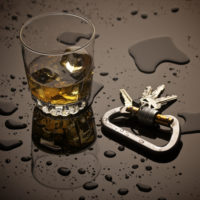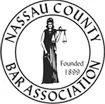Orange County Court Rules on Liability of Bar Owners to Maintain a Safe Premises

Late last year, the New York Supreme Court, Orange County, dismissed a case against a Poughkeepsie tavern and refused to hold the bar owner liable for injuries which occurred to a patron who was shot outside the bar. The court considered the case under New York’s Dram Shop Act and general negligence under New York’s premises liability law. Under either theory, however, the facts did not support holding the bar responsible for the injury which occurred.
The story begins in Dutchess County, when the plaintiff in the case of James v. Terrace Tavern, LLC, started to enter the Poughkeepsie bar. He stopped when he saw a man already inside the bar whom he knew was out to get him. James turned around and ran down the street, but the man in the bar followed him outside, gave chase and shot him. James sued the man who shot him as well as the bar owner and landlord. The shooter was convicted of the crime and sent to prison, and James obtained a default civil judgment against him. The bar owner and landlord both moved the court for summary judgment to have the claims against them dismissed.
No Dram Shop Liability Here
The court first evaluated the plaintiff’s claims under New York’s Dram Shop Act, found at General Obligations Law 11-101. Under this law, a tavern can be held liable for injuries caused by a person to whom it unlawfully sells alcohol, which would include selling alcohol to a minor or serving a person who is obviously intoxicated. The principle underlying this law is that it is foreseeable that serving alcohol to a minor or a person who is already drunk could lead to injuries to a third party, whether in a car accident, a fight, or some other type of negligent or intentional misconduct. The reason James’ claim for Dram Shop Liability failed was because he didn’t provide any evidence to show that the shooter had been served at the bar when he was visibly intoxicated, or even that he had been served at all.
No Premises Liability for Injury Outside the Premises
The plaintiff also asserted the bar’s liability under general negligence principles of premises liability, which requires the property owner and the landlord to provide a reasonably safe premises. The reason this argument failed is twofold: first, the shooting happened outside of the tavern on a public street; and second, there was no evidence that the bar was an unsafe premises at the time. For instance, James did not produce any evidence that fighting or any other dangerous activity was occurring in the bar at the time. Therefore, there wasn’t any dangerous condition present at the bar that the owner knew or should have known about, so there wasn’t any duty on the part of the bar owner to prevent the incident.
No Special Relationship
In order to hold a tavern owner liable for the conduct of its patrons, there would have to be some special relationship between the bar owner and either the plaintiff or the tortfeasor. Without this relationship, the bar was under no duty to protect the plaintiff inside the bar, and certainly no duty to protect him outside the bar. The tavern’s duty to its patrons was limited to liability under the Dram Shop law, and as noted above, the plaintiff in this case did not prove that such liability should apply in this instance.



